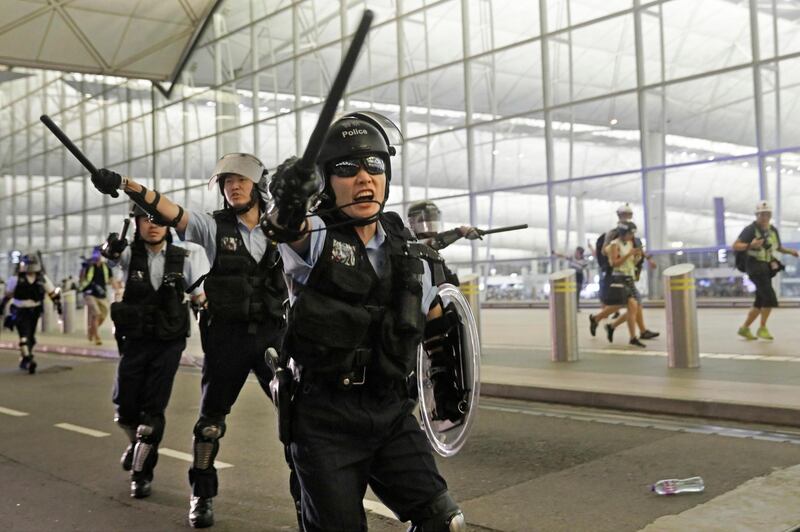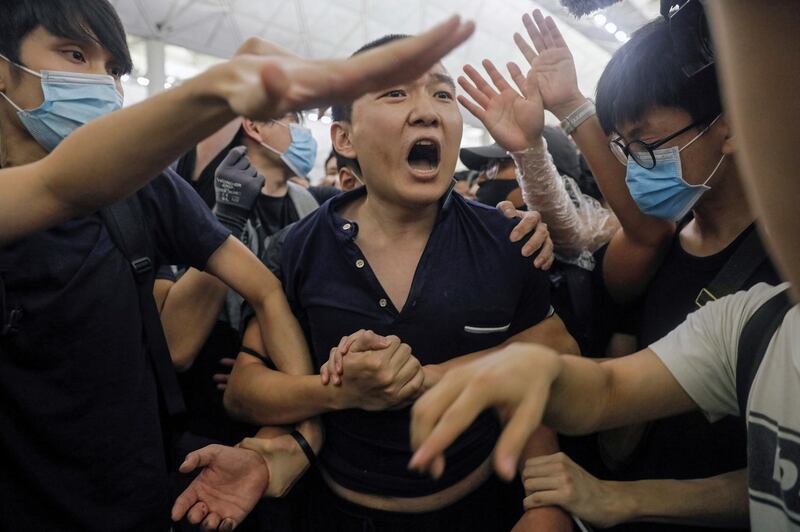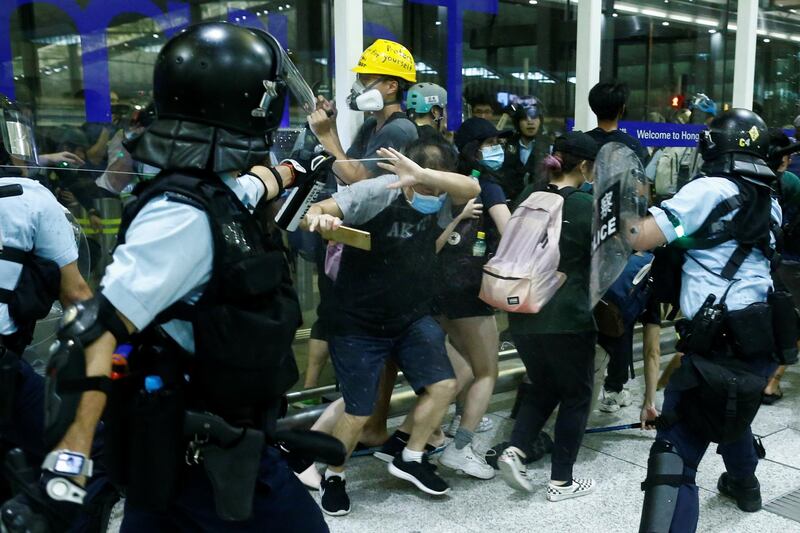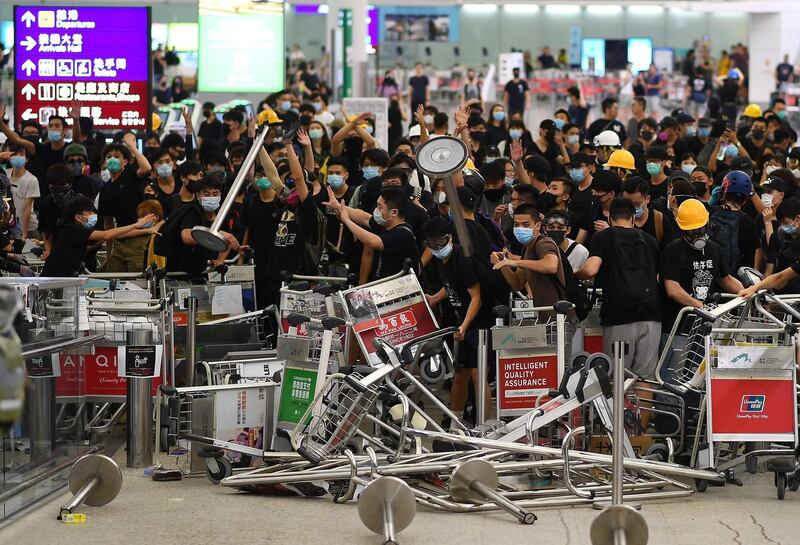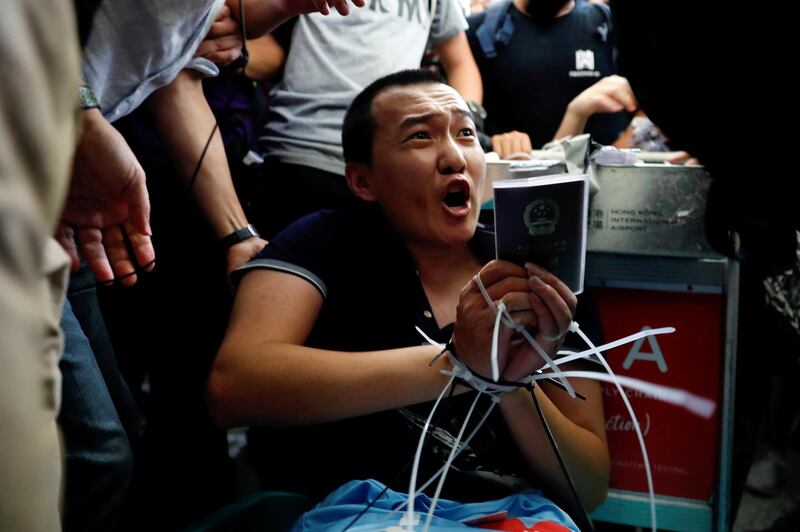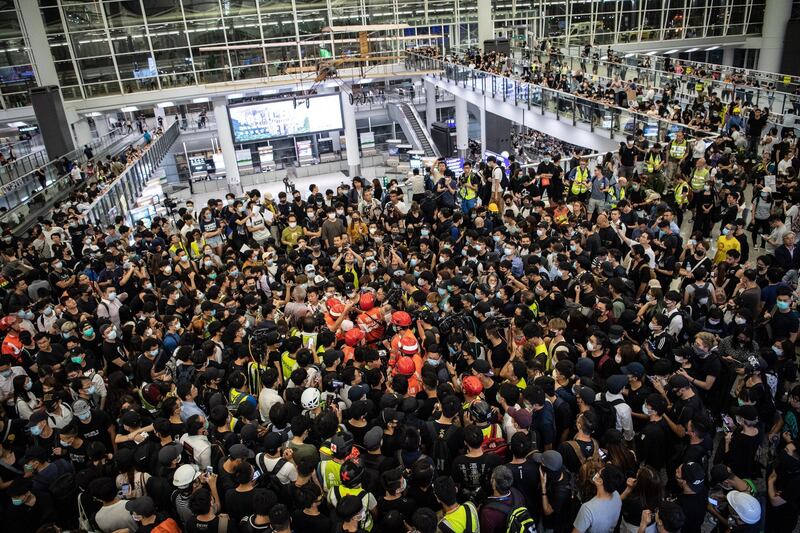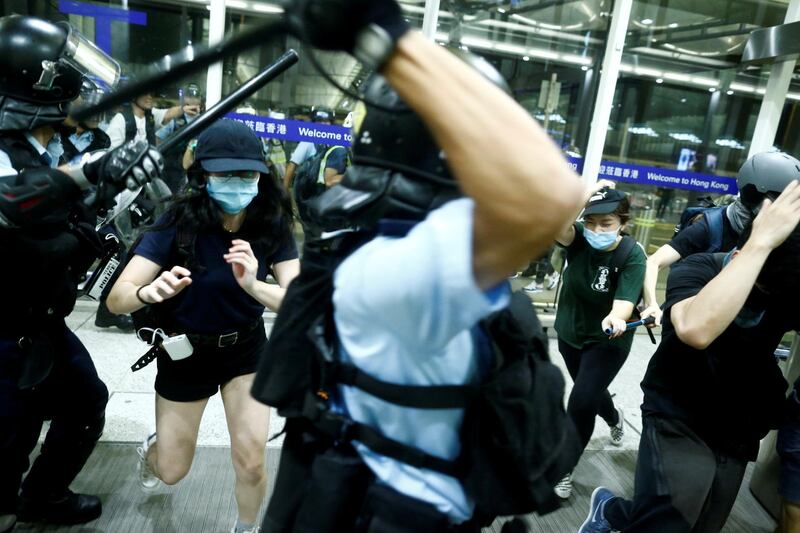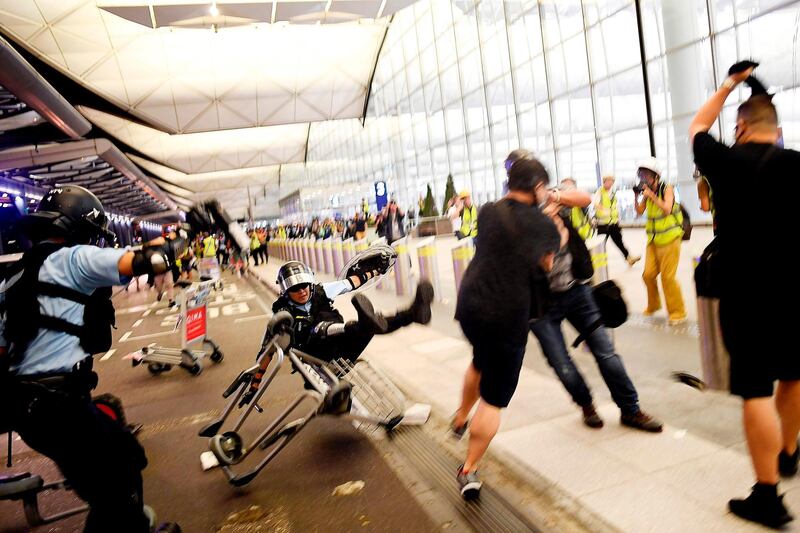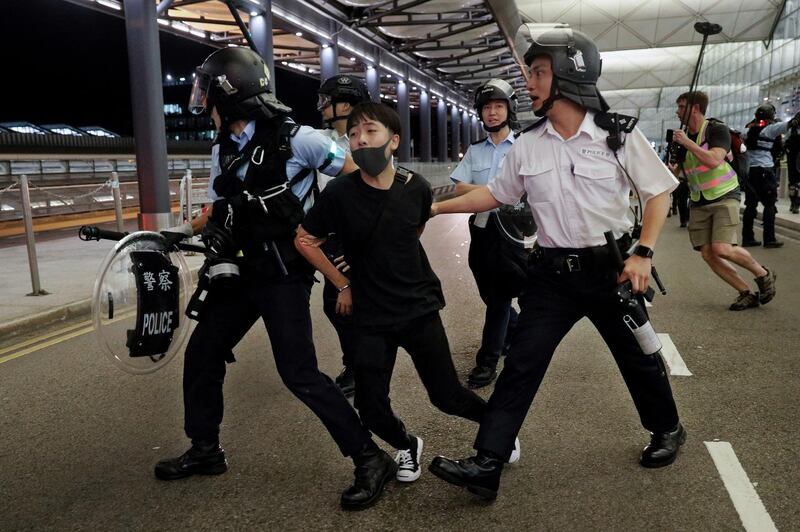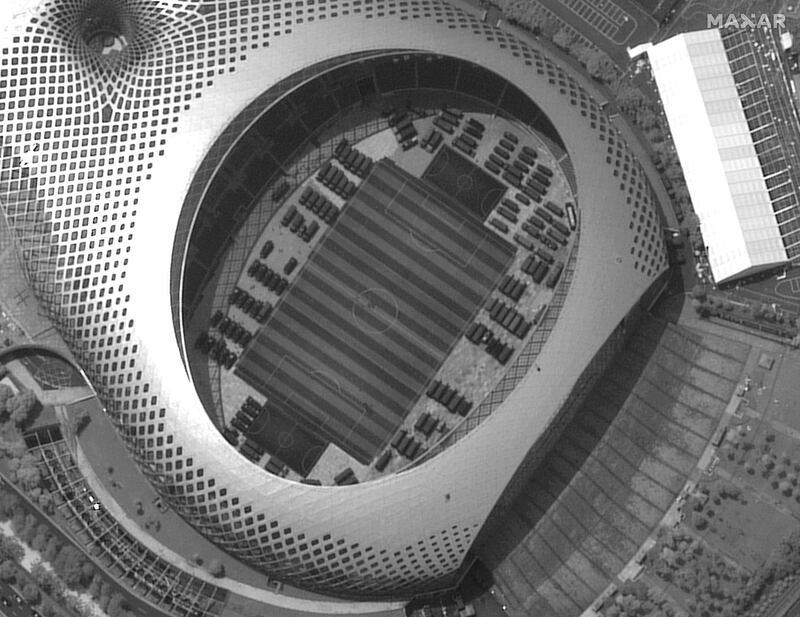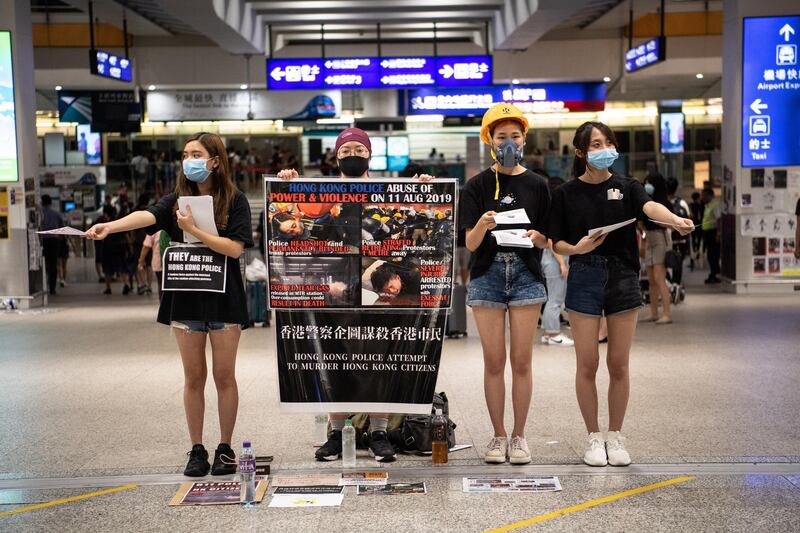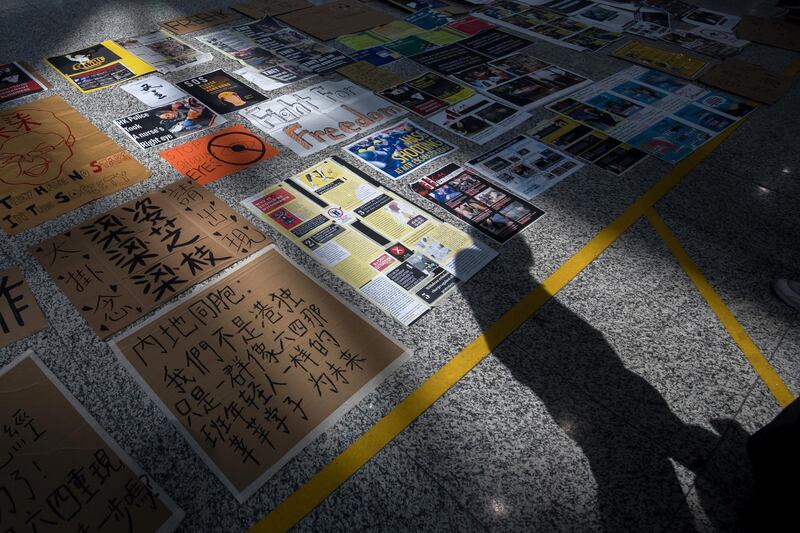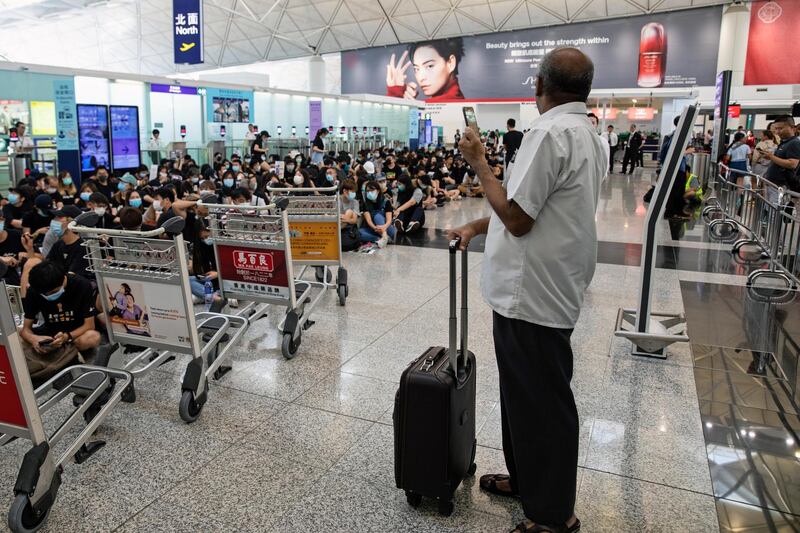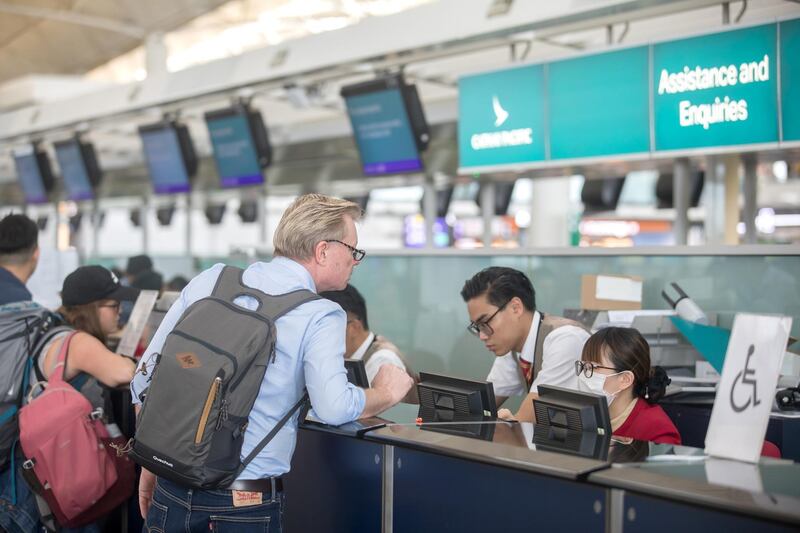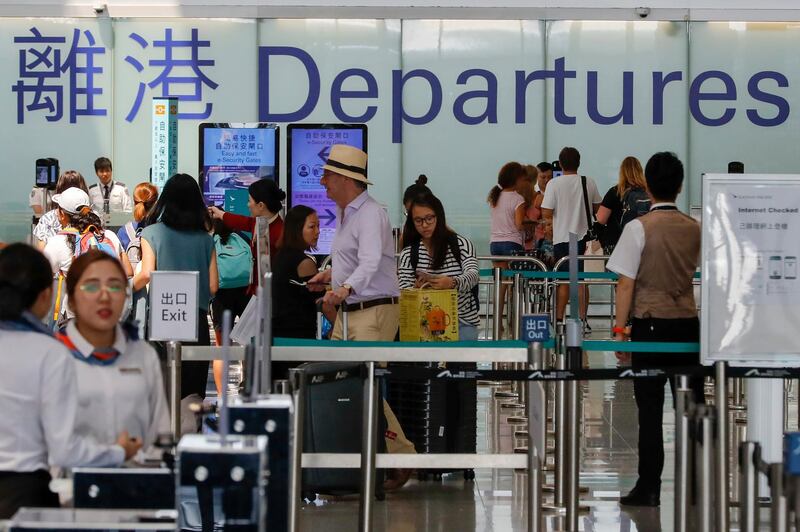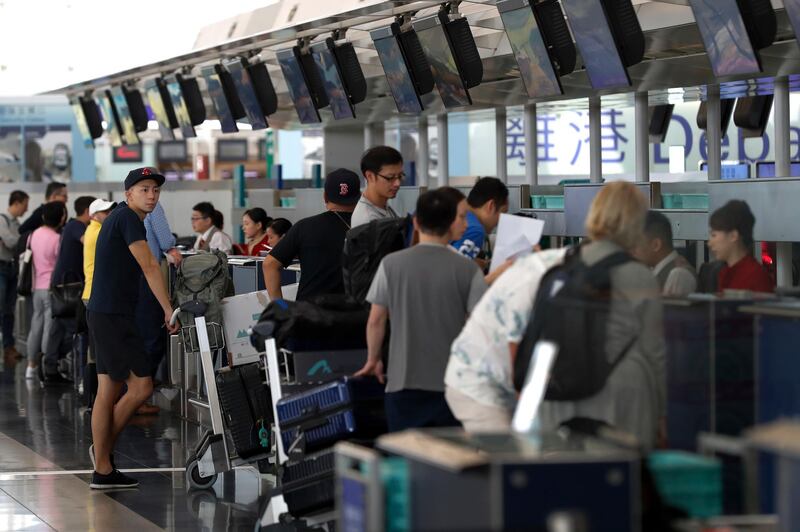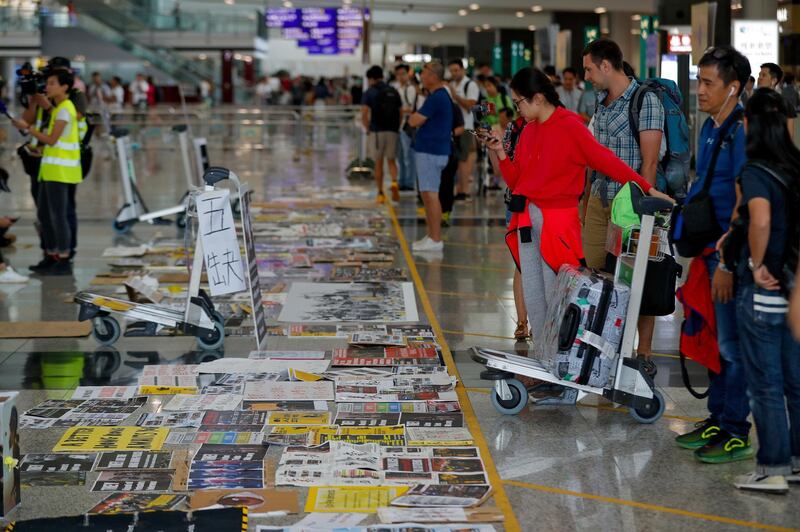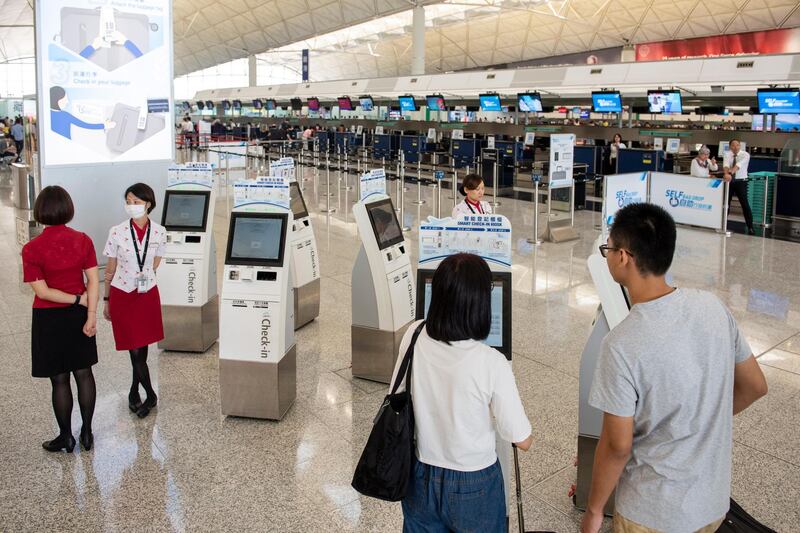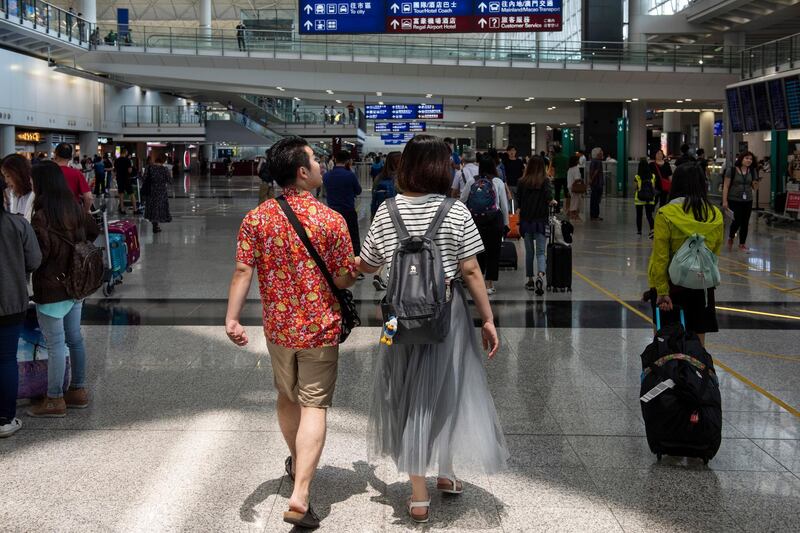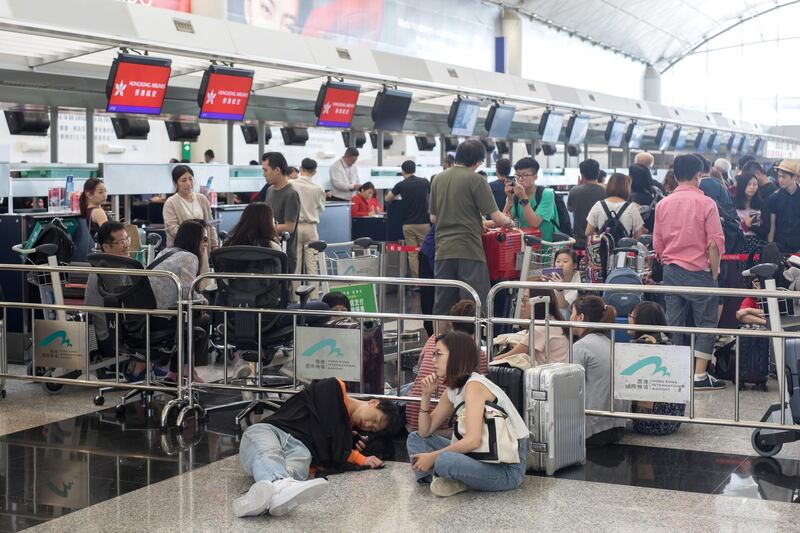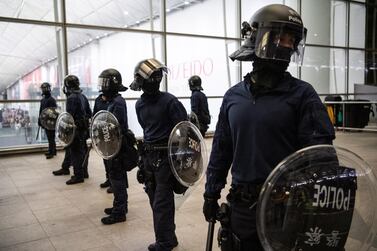Beijing on Wednesday slammed pro-democracy protesters in Hong Kong airport for what it described as "terrorist-like" acts, after two men were beaten by demonstrators.
On Monday and Tuesday, thousands of protesters wearing their signature black T-shirts gathered at Hong Kong's airport, forcing authorities to cancel hundreds of flights.
The rallies paralysed one of the world's busiest travel hubs, deepening a 10-week crisis that is the biggest challenge to Chinese rule of Hong Kong since its 1997 British handover.
After initially just voicing their demands with peaceful demonstrations, the protesters adopted more aggressive tactics on Tuesday and created barricades with luggage trolleys to block passengers at the departure halls.
Late on Tuesday night, the protests descended into a series of violent confrontations with police, and demonstrators in scuffles with passengers desperate to get on flights.
Demonstrators also turned on two men, fuelled by suspicions within their ranks about undercover police or spies.
"We express the strongest condemnation of these terrorist-like actions," said Xu Luying, spokeswoman at the Hong Kong and Macao Affairs of the State Council, who called the two men "mainland China compatriots".
The first man was held for about two hours and assaulted before eventually being taken away in an ambulance. Riot police briefly used pepper spray and batons to beat back protesters while they escorted the vehicle away from the departures hall.
Another man, wearing a yellow journalist vest, was surrounded, zip-tied and then beaten by a small group who accused him of being a spy.
In a tweet, Hu Xijun, the editor of China's state-controlled Global Times tabloid — which has vociferously condemned the protests — said the man was working for the paper.
Demonstrators on Wednesday apologised for their actions at the airport, saying they were sorry that some of their number became “easily agitated and overreacted.”
"After months of prolonged resistance, we are frightened, angry and exhausted," the group, which has no formal leadership, said in a statement.
Flights resumed to and from the airport on Wednesday morning, following an injunction obtained by the Airport Authority and extra security measures outside the terminals.
People would be "restrained from attending or participating in any demonstration or protest... in the airport other than in the area designated by the Airport Authority," a statement read.
The people power movement, which has resulted in millions taking to Hong Kong's streets, was sparked by opposition to a planned law that would have allowed extraditions to mainland China.
It quickly evolved into a much broader campaign for democratic freedoms and efforts to stop the growing influence of China's rulers in the semi-autonomous city.
One particular scene was shared widely on social media showing a policeman in riot gear swinging with a baton at a protester before a crowd surrounded him and beat the officer.
After one demonstrator forced the baton from the officer's hand and beat him with it he reaches for his gun and aims it at the crowd who fall back. Other officers then arrive and the visibly shaken policeman retreats with his colleagues.
Protesters and many Hong Kong residents have been taken aback by the robust response from police forces who have used tear gas and batons to clear demonstrations. Protesters are demanding an independent inquiry into the use of force by officers but in the meantime have met the violence with violence of their own.
Protesters have fought with officers but also launched bricks and stones at police lines and police stations. The city's leaders have continuously backed the police and rejected calls for an investigation.
US President Donald Trump on Tuesday night added to fears Beijing may be prepared to stage a military intervention to end the unrest, saying his intelligence had confirmed Chinese troop movements towards the Hong Kong border.
"I hope it works out for everybody including China. I hope it works out peacefully, nobody gets hurt, nobody gets killed," he said.
Other nations also expressed their dismay at the protests and police reaction descending into violence. German Chancellor Anglela Merkel told reporters in Berlin on Wednesday that “everything must be done to prevent violence and to find possibilities for a solution within the framework of dialogue," adding that any dialogue should occur on the basis of the Hong Kong Basic Law of 1997, which guarantees residents a greater measure of freedoms than those in mainland China.
By early Wednesday, most protesters had left the airport and many flights were operating as scheduled through the morning.
However, it was unclear if the protesters, who have no public leaders and organise via social media, would return to the hub.
"The airport is our last bargaining chip," said one of a handful of protesters who remained at the terminal on Wednesday morning.
Michael, 25, a tourist from Dubai, got to the airport on Wednesday, more than 12 hours before his flight home to avoid potential protests later in the day.
"I can feel like they are really fighting for my freedom, so my heart goes out to them in a way," he said of the protesters.
But he said they were now targeting the wrong people.
"The passengers have nothing to do with what's happening, they mostly are tourists," he said.
On Tuesday morning, the city's leader, Carrie Lam, gave an at-times emotional press conference in which she warned of dangerous consequences if escalating violence was not curbed and said the hub was being "pushed into an abyss".
But she once again refused to make any concessions to the protesters.
The Chinese government has repeatedly signalled the protesters are reaching the limits of the "one country, two systems" legal framework that gives Hong Kong its autonomy.
Authorities in Beijing on Monday described some of the violence as "terrorism", and state-run media this week began promoting videos showing security forces gathering in Shenzhen just across the border from Hong Kong.
The United Nations' human rights chief on Tuesday voiced concern over force used against protesters and called for an impartial probe.
